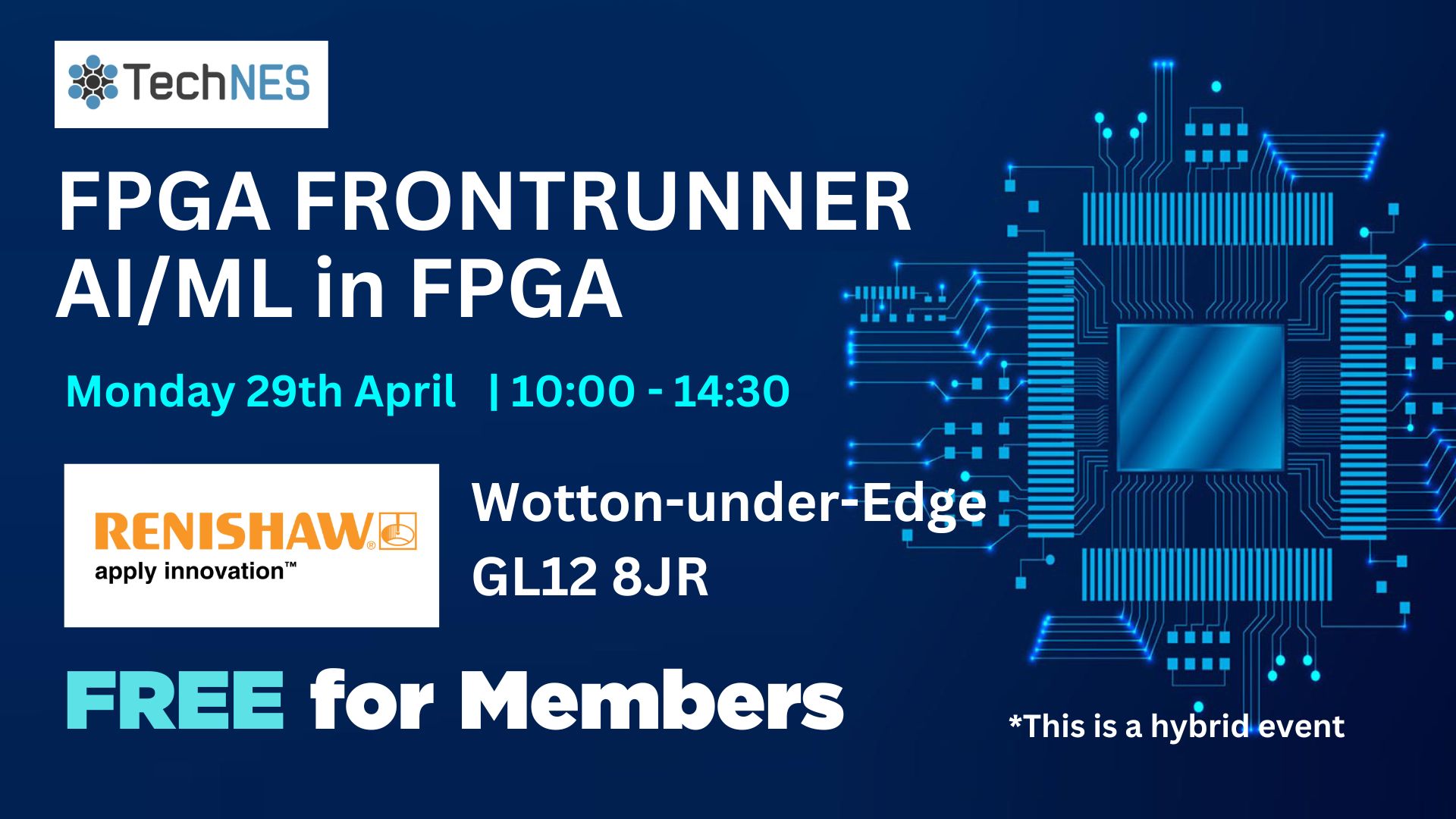

TechNES FPGA Frontrunner AI/ML in FPGA
April 29 @ 10:00 am - 4:30 pm
FPGA Frontrunner AI/ML in FPGA

The FPGA Front Runners event will be hosted by Renishaw at their venue in Wotton-under-Edge.
The event will focus on “Using AI in development and product for FPGA”.
If you are interested in speaking at this event please email [email protected]
Topics for talks:
- What AI support is being built into the FPGA fabrics?
- How are they used?
- What input language is used and how does it find it’s way into the FPGA?
- How is the AI trained?
Directions
When you arrive at Renishaw, visitors should park in Car Park A (no charges) using Entrance A, and register at the Innovation Centre.
The event will be hosted in Room Brunel 3, but everything will be set in the Renishaw Innovation Centre.
Speakers
We are happy to announce our speakers :
- Andrew Swirski, Beetlebox Ltd
- Javier Carnero, Samtec
- Pete Leonard, Renishaw
- Christos Bouganis, Intelligent Digital Systems
- Ian Pearson, Microchip
- Suleyman Demirsoy, Intel
Details will appear below as they become available.

Javier Carnero
Field Applications Engineer
Samtec
Javier is a Field Applications Engineer for Samtec supporting customers across Europe on High Speed and RF product designs. Graduated on Electronics Product Development and having a good knowledge of physics he understands the signal channel from transceiver to receiver.
Prior to Samtec he’s worked as FAE and Product Manager specialized on connectors with more than fifteen years of experience on the industry.

Pete Leonard
Electronics Design Manager – Group Engineering
Renishaw PLC
Pete Leonard started his engineering career with EMI (later Thorn EMI) developing broad skills as an undergraduate within a number of defense projects, specialising in Radar development including advanced airborne systems. Graduating in 1989 from UWE Bristol, Pete went onto develop several high-speed data acquisition systems which included digital control, incorporating FPGA devices. System validation was completed onsite at many MOD coastal locations in the UK.

Andrew Swirski
Founder and Managing Director
Beetlebox Ltd
Andrew Swirski is the founder and managing director of Beetlebox, based in London. At Beetlebox, he and his team created the first CI/CD platform focused on the embedded sector. Their platform has seen use within AI,IoT, 5G and the robotics sector.
Captivated by the potential of embedded systems to change the lives around us, whilst as masters’ student at Imperial College London, Andrew has been continually involved in the area, whether as an engineer or as a business leader. He previously worked at Intel (Altera) on FPGAs for telecoms systems.

Ian Pearson
Principle Embedded Solutions Engineer
Microchip Technology Inc.
Ian is a Principle Embedded Solutions Engineer at Microchip Technology Inc. He has held roles in MCU and MPU applications and also led the EU Wireless team for many years introducing Wi-Fi and Bluetooth into the embedded product lines. He has been involved with IoT since it’s inception and is an advocate of enhancing security in Connected Embedded Systems. To aid this he is active on several working groups in the IoT Security Foundation and has presented on security topics at several conferences. More recently he has returned to the FPGA space and supports Microchip clients on FPGA, SoC and Security needs across multiple market segments.

Christos-Savvas Bouganis
Professor of Intelligent Digital Systems
Imperial College London
Christos-Savvas Bouganis is a Professor of Intelligent Digital Systems in the Department of Electrical and Electronic Engineering, Imperial College London, U.K. He is leading the iDSL group at Imperial College (https://www.imperial.ac.uk/idsl), with a focus on the theory and practice of reconfigurable computing and design automation, mainly targeting the domains of Machine Learning, Computer Vision, and Robotics.

Suleyman Demirsoy
System Architect
Altera
Suleyman Demirsoy is a System Architect in Altera / Intel Programmable Solutions Group. His interest and activity areas include AI, DSP, HPC and Cloud / DC workloads, tools and platform optimization. He has been working with FPGAs for more than 20 years.


